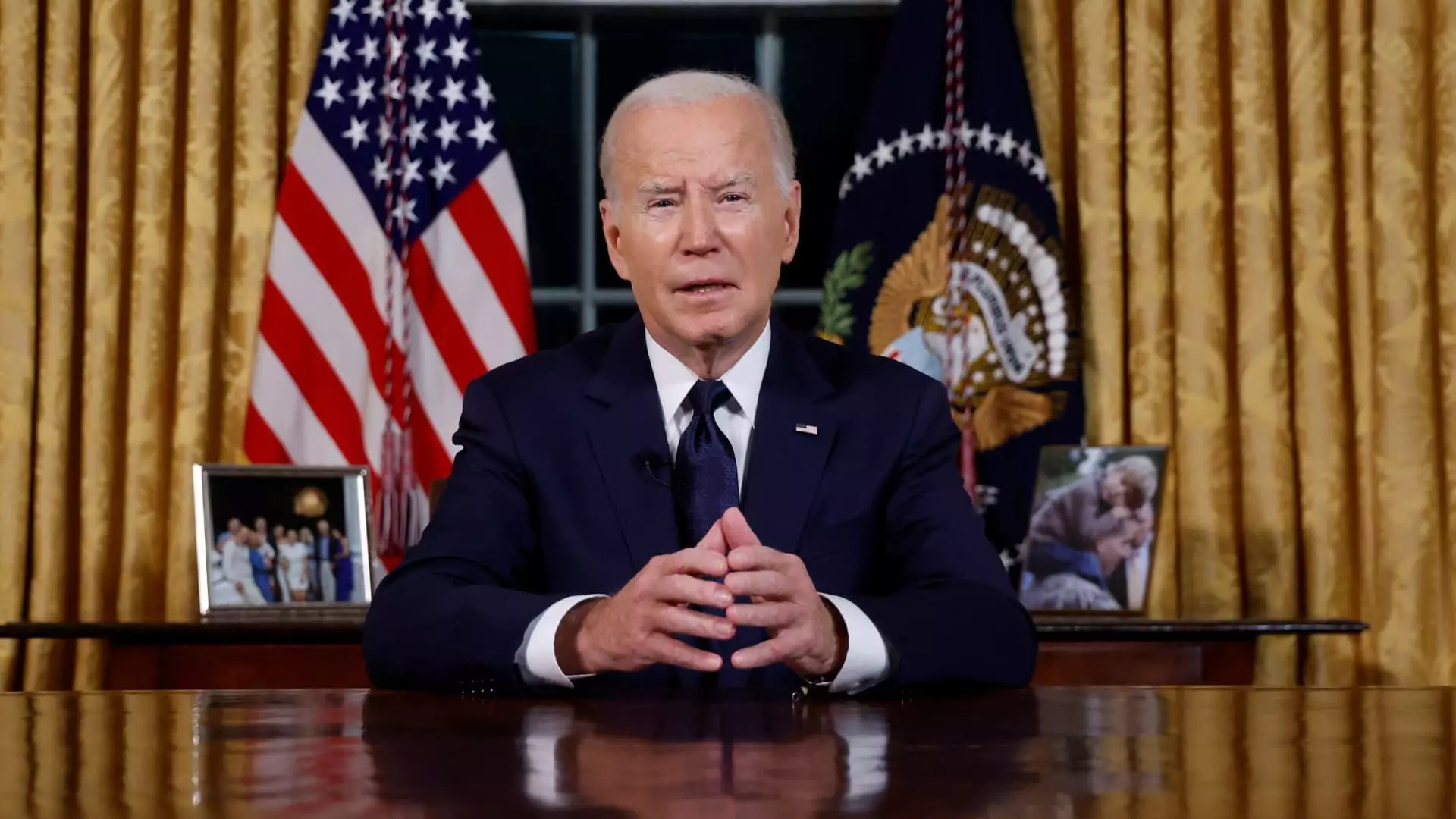U.S. President Joe Biden addressed the nation in a rare White House speech, announcing an “urgent” funding request to Congress for military aid to support Ukraine and Israel in their ongoing war efforts. With an estimated funding of around $105 billion, Biden emphasized that this allocation of funds would be a “smart investment” considering the current state of global affairs, which he described as an “inflection point” in world history. The President’s speech aimed to highlight the gravity of the situations faced by Ukraine and Israel, urging the American public to recognize the shared threats they face.
President Biden’s funding request signifies a strong message of support for Ukraine in its ongoing conflict with Russia. Ukrainian President Volodymyr Zelenskyy expressed his gratitude to the United States for its assistance during a video update following a call with President Biden. Zelenskyy acknowledged the importance of American leadership in rallying the world behind the cause of protecting life and the rules-based international order. Unity, both within Ukraine and among its international partners, including the United States, was emphasized as crucial in defending against terror and aggression.
Mixed Progress on the Southern and Eastern Fronts
The Ukrainian military reported some headway against Russian forces in southern Ukraine, with an advance of 400 meters to the southwest of Verbove in the Zaporizhzhia region. However, progress remains challenging due to Russian minefields and heavily fortified defenses. The Institute for the Study of War suggested that Ukrainian forces had broken through on the left bank of the Dnipro River in the southern Kherson region. The Ukrainian government refrained from commenting on this report. Meanwhile, on the eastern front, Ukrainian forces faced attacks near the towns of Kupiansk and Avdiivka, with continuous attempts by Russian forces to encircle Avdiivka. The situation highlights the intensifying nature of the conflict and the resilience required to defend key regions.
In a significant move, Ukraine’s Parliament passed the first reading of a bill that could potentially ban the Ukrainian Orthodox Church over alleged connections to Russia. The bill, titled the “prohibition of religious organizations associated with the Russian Federation,” received 267 votes in favor. The concern stems from allegations of the church’s affiliation with Russia during the ongoing war, raising national security apprehensions. The church leadership vehemently denies these allegations, with tensions intensifying over its status and the authorities’ actions to detain and evict senior clerics.
The urgency of President Biden’s funding request for Ukraine and Israel demonstrates the recognition of the critical situations they face in their respective conflicts. The proposed funding amount of $105 billion indicates a significant commitment to supporting these nations in their battles for sovereignty and security. However, it is essential to critically examine the implications of such financial aid.
While the support for Ukraine’s fight against Russia is crucial in maintaining regional stability and preserving the values of democracy, it is essential to ensure that the funds are effectively utilized. Emphasis should be placed on transparency and accountability, ensuring that the aid directly contributes to strengthening Ukraine’s defense capabilities. Additionally, it is vital to engage in diplomatic efforts to de-escalate the conflict and establish a path towards a peaceful resolution.
Regarding Israel, the funding request reflects the United States’ firm commitment to its long-standing ally in the region. However, this support should not overshadow the importance of promoting a just and lasting solution to the Israeli-Palestinian conflict. Alongside military aid, efforts should be made to prioritize diplomacy and foster dialogue between the conflicting parties, aiming for a comprehensive peace agreement that addresses the root causes of the conflict.
President Biden’s urgent funding request for military aid to Ukraine and Israel indicates a recognition of the critical juncture in global history. The conflicts faced by these nations pose significant challenges to regional stability and international order. While financial assistance is necessary, it is imperative to approach the allocation and usage of funds with caution and deliberation, ensuring that they contribute to long-term solutions and peace-building efforts. Only through comprehensive strategies encompassing diplomacy, dialogue, and transparency can lasting peace and security be achieved in these regions.


Leave a Reply